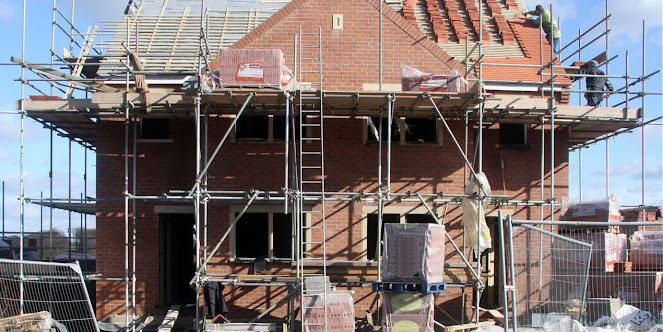Accurate cost estimating is one of the most crucial aspects of any construction project. Whether you're building a home extension, a commercial space, or a large-scale development, your ability to plan and manage your budget can make or break the outcome. Unfortunately, many construction projects in the UK run into trouble because of flawed estimates made early in the process.
This is where the expertise of a Quantity Surveyor (QS) becomes invaluable. These professionals bring both precision and foresight to your financial planning, helping you avoid the all-too-common estimating mistakes that lead to budget overruns, delays, and unnecessary stress.In this article, we’ll explore five common construction cost estimating mistakes—and more importantly, how Quantity Surveyors help clients and contractors avoid them.
1.
Underestimating
Project Scope
The Mistake:
Many cost estimates fall short simply because the full scope of the project isn’t clearly understood or defined at the outset. For instance, a client might fail to account for site preparation, drainage systems, or regulatory requirements. These "hidden" elements can result in significant budget blowouts if overlooked.
How a QS Avoids
It:
A Quantity Surveyor conducts a detailed feasibility study and reviews architectural and engineering plans to ensure the scope is fully captured. They also ask the right questions early on, identifying elements that clients or developers may not have considered.
Using tools like a Bill of Quantities (BoQ), a QS ensures every aspect of the work is accounted for—reducing the risk of unexpected surprises.
Benefit:
A complete, transparent scope from day one means fewer change orders and cost escalations later.
2.
Using
Outdated or Generic Pricing Data
The Mistake:
It’s tempting to base estimates on historical data or generic industry rates, but construction costs fluctuate—especially in today’s volatile materials and labour markets. Using old or inappropriate data leads to unrealistic budgets and inaccurate tenders.
How a QS Avoids
It:
Quantity Surveyors have access to real-time market data and understand how regional pricing, inflation, and supply chain issues affect costs. They adjust for location-specific factors, project scale, and current material trends—providing you with estimates grounded in reality.
They also update estimates regularly throughout the project lifecycle to reflect any changes in pricing or design.
Benefit:
Estimates reflect real market conditions, helping avoid underfunding or overpricing.
3. Ignoring Risk
and Contingency Planning
The Mistake:
Construction projects are full of variables—weather, supplier delays, design changes, and unforeseen site conditions. Yet many estimates fail to include contingencies or allowances for risks, leading to financial shortfalls when the unexpected happens.
How a QS Avoids
It:
A Quantity Surveyor doesn’t just estimate what should happen—they plan for what could happen. They carry out a risk assessment and add contingencies based on the complexity and uncertainty of the project.
For example, they might allow a 10% contingency for early design estimates or include provisional sums for items yet to be finalised. This makes the estimate robust and flexible enough to handle uncertainty.
Benefit:
Built-in resilience to absorb cost fluctuations and reduce financial stress mid-project.
4. Overlooking
Indirect Costs
The Mistake:
Most people focus on bricks, mortar, and labour—but there are a host of indirect costs that can quietly inflate your construction budget. These include site security, insurance, professional fees, waste management, and permits.
When these are ignored or poorly estimated, the project appears cheaper than it really is—leading to funding gaps.
How a QS Avoids
It:
A Quantity Surveyor includes both direct and indirect costs in their comprehensive cost plan. They understand the full construction lifecycle and ensure items such as temporary works, preliminaries, and statutory requirements are factored in from the beginning.
This prevents last-minute budget expansions that could derail financing or delay the timeline.
Benefit:
A complete financial picture that avoids nasty surprises during execution.
5. Poor
Communication Between Stakeholders
The Mistake:
Construction projects involve multiple parties—clients, architects, engineers, contractors, and suppliers. Poor communication between these stakeholders often leads to incomplete or inconsistent information, resulting in flawed estimates.
For example, if the architect modifies the design but fails to inform the estimator, the budget may not reflect the updated work, leading to discrepancies.
How a QS Avoids
It:
Quantity Surveyors act as a bridge between all parties, ensuring accurate information flow. They verify assumptions, review design changes, and align all cost elements across the team.
They also update the cost plan in response to design development, maintaining alignment between the brief, drawings, and financials.
Benefit:
Reduces risk of budget mismatches and ensures decisions are based on up-to-date data.
Why These Mistakes
Are So Costly
Each of these errors can have a compounding effect on your project. An underestimated scope can cause delays. Flawed pricing can create disputes. Missing contingencies can force re-financing. The result? A project that costs more, takes longer, and delivers less value than planned.
By working with a Quantity Surveyor from the early stages, you're not just buying an estimate—you're investing in a financial management strategy tailored to the unique challenges of your project.
The QS Advantage:
More Than Just Numbers
Quantity Surveyors bring a unique combination of technical skill, market insight, and commercial acumen. They ensure your construction project is not only buildable, but bankable—and that it delivers value at every step.
With accurate, data-backed cost planning, transparent reporting, and proactive risk management, a QS becomes an essential partner in the journey from concept to completion.
Conclusion
Mistakes in cost estimating are common—but avoidable. With the right professional guidance, you can protect your investment, reduce stress, and set your project up for success.
If you're planning a construction project in the UK and want to avoid costly estimating errors, now is the time to bring in the experts. PEJA Surveying offers professional quantity surveying services that prioritise accuracy, transparency, and long-term value. Get in touch today to ensure your project starts with the right numbers—and finishes with the right result.
Comments
Post a Comment